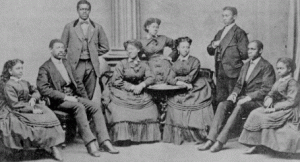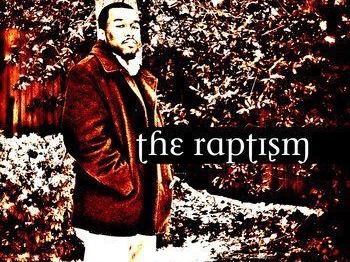Originally posted Feb 1, 2010 I wanted to revisit this concept yet again this year…
As frequent visitors to GFM know this organization consistently and constantly embraces the philosophy of “Bridging gaps”. Whether these “gaps” take the form of generational, musical or technological; GFM is committed to ensuring that the lack of knowledge or awareness (that are usually at the core of these “gaps”) are addressed with the proper historical, cultural and social context needed to symbolically close them.
On a personal note, I am an avid viewer of documentaries, I have been since I can remember. Recently, I cannot tell you how many that I have watched and I sit in amazement when the same declaration is made almost verbatim: “Hip-Hop is a global phenomenon.” Yes it is, I’m sure we can all agree on that point. But my point of contention is not what is said but what is implied by how it’s said.
That particular statement is made as if Hip-Hop is the first and only African-derived music to have such status. Sorry to say and sad to report, it’s not. Further, not only is it not the only African-derived music to receive that type of acclaim but African-American musicians performing European-derived music received international acclaim in the 19th century. I say all this to say that global acclaim for the African-American musician is nothing new.
Quite simply it is the arrogance of ignorance that I take issue with. Simply put if we were to understand that all of this music is part of a continuum I believe that we would cherish it more and safeguard it’s cultural importance. Far too often we place entirely too much emphasis on the commercial appeal of a musical genre, not realizing that when it falls out of favor with the mass consumption “benefactors” as it were, it is often regulated to museum music status. Quite often it is the same “benefactors” who control the museum when they get older.
What often happens is that when we are presented with music that pre-dates what our particular generation validates, it is devoid of context. Learning to respect and love the musical contributions of generations prior is a process. It won’t happen with just playing a musical example or two which is usually accompanied by some snickering. You have to accompany the music with an explanation of the times and the people and draw exact parallels between what someone validates now and the equivalent of that then.
Please do not misconstrue anything that I have said here into I’m a hater of Hip-Hop, the way I feel about the music is certainly to the contrary. But what I often wrestle with is that quite simply we have such an incredibly rich musical legacy that you could take any genre of music created in this country that is African at the root and substitute it for Hip-Hop and the basic thesis statement would be the same. Try it sometime, and don’t look at it from the standpoint of what the music has become look at it from the standpoint of when the music dominated the landscape like Hip-Hop does now.
What we will seek to present this month are the stories of some of the lesser known artists who during their respective eras had tremendous influence but may or may not be household names. We will begin our journey in the 19th century and we hope that we will provide a forum of discovery, debate and quite possibly resolution to some of the challenges that have faced these musicians and their music for well over 150 years. We hope you will enjoy the series and tell a friend.
Ivan Orr is a multi-instrumentalist, composer, performer, and writer. A native of Charlottesville, Virginia Ivan was involved with the forming and nascent days of The Music Resource Center as its first Program Director. A graduate of Virginia Commonwealth University’s Department of Music, Ivan currently resides in Richmond, VA where he maintains an active performance and production schedule while serving as the Music Editor for Grown Folks Music, a position he has held since 2010.
RELATED POSTS
February 2, 2017
GFM Black History Spotlight- Sissieretta Jones
October 15, 2010
GFM Spotlight-Jeff Hendrick
January 26, 2010
GFM Spotlight-Marshall Leathers
July 8, 2010
GFM Spotlight-Eazy
November 22, 2010
GFM Spotlight-Russell Taylor
June 1, 2012






